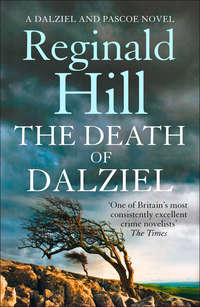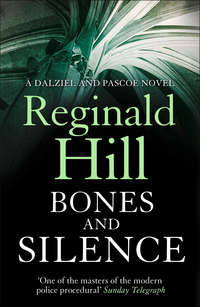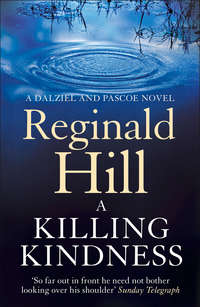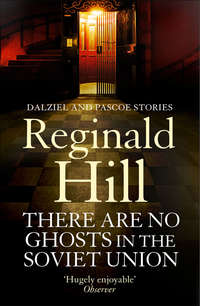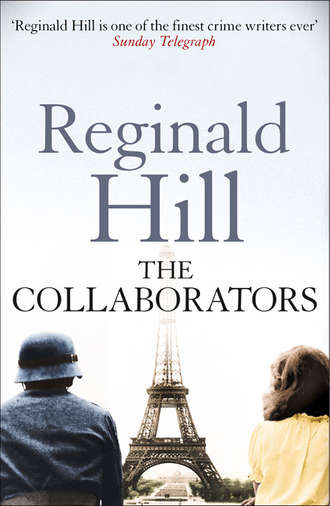
Полная версия
The Collaborators
This was no place for him. He was a creature of the city, and that city was Paris. Pajou had been right in that at least. There was nowhere else to go.
The difference was of course that he would return as a Frenchman, ready to resist in every way possible the depredations of the hated occupiers.
Feeling almost noble, he rose to his feet and, ignoring the path trampled by Pajou, began to forge his own way northward through the ripening corn.
2
Janine Simonian had dived into the ditch on the other side of the road as the Stukas made their first pass. Like her cousin, she had no arm free to cushion her fall. The left clutched her two-year-old daughter, Cécile, to her breast; the right was bound tight around her five-year-old son, Pauli. They lay quite still, hardly daring to breathe, for more than a minute. Finally the little girl began to cry. The boy tried to pull himself free, eager to view the vanishing planes.
‘Pauli! Lie still! They may come back!’ urged his mother.
‘I doubt it, madame,’ said a middle-aged man a little further down the ditch. ‘Limited armaments, these Boche planes. They’ll blaze away for a few minutes, then it’s back to base to reload. No, we won’t see those boys for a while now.’
Janine regarded this self-proclaimed expert doubtfully. As if provoked by her gaze, he rose and began dusting down his dark business suit.
‘Maman, why do we have to go to Lyon?’ asked Pauli in the clear precise tone which made old ladies smile and proclaim him ‘old-fashioned’.
‘Because we’ll be safe down there,’ said Janine. ‘We’ll stay with your Aunt Mireille and Uncle Lucien. They don’t live in the city. They’ve got a farm way out in the country. We’ll be safe there.’
‘We won’t be safe in Paris?’ asked the boy.
‘Because the Boche are in Paris,’ answered his mother.
‘But Gramma and Granpa stayed, didn’t they? And Bubbah Sophie too.’
‘Yes, but Granpa and Gramma have to look after their shop…’
‘More fool them,’ interrupted the middle-aged expert. ‘I fought in the last lot, you know. I know what your Boche is like. Butchering and looting, that’s what’s going on back there. Butchering and looting.’
With these reassuring words, he returned to his long limousine, which was standing immediately behind Janine’s tiny Renault. He was travelling alone. She guessed he’d sent his family ahead in plenty of time and been caught by his own greed in staying behind to cram the packed limo with everything of value he could lay his hands on.
Janine reprimanded herself for the unkind thought. Wasn’t her own little car packed to, and above, the roof with all her earthly possessions?
Others were following the businessman’s example and beginning to return to the road. There didn’t seem to have been any casualties in this section of the long procession, though from behind and ahead drifted cries of grief and pain.
‘Come on, madame! Hurry up!’ called the man, as if she were holding up the whole convoy.
‘In a minute!’ snapped Janine, who was busy comforting her baby and brushing the dust out of her short blonde fuzz of childish hair.
Pauli rose and took a couple of steps back on to the road where he stood shading his eyes against the sun which was high in the southern sky.
‘They are coming back,’ he said in his quiet, serious voice.
It took a couple of seconds for Janine to realize what he meant.
‘Pauli!’ she screamed, but her voice was already lost in the explosion of a stick of bombs only a couple of hundred metres ahead. And the blast from the next bowled her over back into the protecting ditch.
Then the screaming engines were fading once more.
‘Pauli! Pauli!’ she cried, eyes trying to pierce the brume of smoke and dust which enveloped the road, heart fearful of what she would see when she did.
‘Yes, maman,’ said the boy’s voice from behind her.
She turned. Her son, looking slightly surprised, was sitting in the corn field.
‘It flew me through the air, maman,’ he said in wonderment. ‘Like the man at the circus. Didn’t you see me?’
‘Oh Pauli, are you all right?’
For answer he rose and came to her. He appeared unscathed. The baby was crying again and the boy said gravely, ‘Let me hold her, maman.’
Janine passed the young girl over. Céci often reacted better to the soothing noises made by her brother than to her mother’s ministrations.
Turning once more to the road, Janine rose and took a couple of steps towards the car. And now the smoke cleared a little.
‘Oh Holy Jesus!’ she prayed or swore.
The bomb must have landed on the far side of the road. There was a small crater in the corn field and a couple of poplars were badly scarred and showed their bright green core, almost as obscene as torn flesh and pulsating blood.
Almost.
The businessman lay across the bonnet of his ruined car. His head was twisted round so that it stared backward over his shoulders, a feat of contortion made possible by the removal of a great wedge of flesh from his neck out of which blood fountained like water from a garden hose.
As she watched, the pressure diminished, the fountain faded, and the empty husk slid slowly to the ground.
‘Is he dead, maman?’ enquired Pauli.
‘Quickly, bring Céci. Get into the car!’ she shouted.
‘I think it’s broken,’ said the boy.
He was right. A fragment of metal had been driven straight through the engine. There was a strong smell of petrol. It was amazing the whole thing hadn’t gone up in flames.
‘Pauli, take the baby into the field!’
Opening the car door she began pulling cases and boxes on to the road. She doubted if the long procession of refugees would ever get moving again. If it did, it was clear her car was going to take no part in it.
She carried two suitcases into the corn field. As she returned a third time, there was a soft breathy noise like a baby’s wind and next moment the car was wrapped in flames.
Pauli said, ‘Are we going back home, maman?’
‘I don’t know,’ she said wearily. ‘Yes. I think so.’
‘Will papa be there?’
‘I don’t think so, Pauli. Not yet.’
If there’d been the faintest gleam of hope that Jean-Paul would return before the Germans, she could never have left. But the children’s safety had seemed imperative.
She looked at the burning car, the bomb craters, the dead businessman. So this was safety!
‘Maman, will the Germans have stopped butchering and looting now?’ asked the boy.
‘Pauli, save your breath for walking.’
And in common with many others who had found there is a despair beyond terror, she set off with her family back the way they had come.
3
Under the Arc de Triomphe, a cat warmed herself at the Eternal Flame. Then, deciding that the air on this fine June morning was now balmy enough to be enjoyed by a sensitive lady, she set off down the Champs-Élysées. She looked neither to left nor right. There was no need to. Sometimes she sat in the middle of the road and washed herself. Sometimes she wandered from one pavement to the other, hoping to find tasty scraps fallen beneath the café tables. But no one had eaten here for at least two days and the pavements were well scavenged. Finally, when she reached the Rond Point, she decided like a lady of breeding whose servants have deserted her that she’d better start fending for herself and bounded away among the chestnut trees where the beat of a bird’s wing was the first sign of life she’d seen since sunrise.
Christian Valois too was reduced to getting his own breakfast, in his family’s spacious apartment in Passy. Four days earlier the Government had packed its bags, personal and diplomatic, and made off to Bordeaux. With them had gone Valois’s parents, his young sister, and the maid-of-all work. Léon Valois was a member of the Chamber of Deputies and a fervent supporter of Pétain. By training a lawyer, he reckoned there weren’t many things, including wars, which couldn’t be negotiated to a satisfactory compromise. His son, though a civil servant in the Ministry of Finance, was a romantic. To him the move to Bordeaux was a cowardly flight. He refused to leave Paris. Neither his father’s arguments nor his mother’s hysterics could move him. Only his sister, Marie-Rose’s tears touched his heart, but couldn’t melt his resolve.
At work he got less attention. His superior, Marc du Prat, smiled wearily and said, ‘Try not to spill too much blood on my office carpet.’ Then, pausing only to remove the Corot sketch which was his badge of culture, he left.
For three days Christian Valois had conscientiously gone to work, even though he had nothing to do and no one for company. The Ministry occupied part of the great Palace of the Louvre. What was happening in the museum he did not know, but in his section overlooking the Rue de Rivoli, it was eerily quiet, both inside and out.
This morning, because he found himself very reluctant to go in at all, he had forced himself out of bed even earlier than usual. But when he arrived at the Louvre almost an hour before he was officially due, the thought of that silent dusty room revolted him and his feet took him with little resistance down towards the river.
He saw few signs of life. A car crossed an intersection some distance away. Two pedestrians on the other side of the street hugged the wall and looked down as they passed. A priest slipped furtively into St Germain-l’Auxerrois as though he had a secret assignation with God.
Then he was on the quay, looking at the endless, indifferent Seine.
Was he merely a posing fool? he asked himself moodily as he strolled along. Perhaps his father was right. With the army in flight or simply outflanked, the time for heroics was past. It was time for the negotiators to save what they could from the débâcle. Perhaps the Germans wouldn’t even bother to send their army into Paris. Perhaps in the ultimate act of scorn they would occupy the city with a busload of clerks!
At least I should feel at home then, he told himself bitterly.
He had crossed to the Île de la Cité. When he reached the Pont du Change, he headed for the Right Bank once more, half-resolved that he would waste no more time on this foolishness. If he truly wanted to be a hero he should have fled, not to Bordeaux, but to England or North Africa, and looked for a chance to fight instead of merely making gestures.
So rapt was he that his feet were walking in time with the noise before his mind acknowledged it. Once acknowledged, though, he recognized it at once, for he had heard it often, echoing in his dreams like thunder in a dark sky ever since the war had passed from threat to reality, and his imagination had not deceived him. It was the crash of marching feet, powerful and assured, striking sparks off the paving stones as if they made an electrical connection between the conquerors and the conquered. He stopped and leaned against the low parapet of the bridge, overcome by his own mental image.
Then suddenly he could see as well as hear them, and the reality was even more devastating. In columns of three they were striding into the Place du Châtelet, passing beneath the Colonne du Palmier whose gilded Victory seemed to spread her angelic wings wider and hold her triumphal wreaths higher in greeting to these new and mightier victors.
Now they were on the bridge and coming towards him, trio after trio of strong young men, their faces beneath their heavy helmets grave with victory. Past him they strode with never a sideways look. He turned to follow their progress, saw the leaders halt before the Palace of Justice, saw them turn to face it, saw the great gates swing open and the gendarme on duty stand aside as the first Germans entered.
Now once more it was essential he should be at his desk.
He walked as fast as he could without breaking into an undignified trot which might be mistaken for fear. By the time he reached the Louvre the Rue de Rivoli had come to life once more, but what a life! No colourful drift of oppers and tourists, but a rumbling, roaring procession of trucks and tanks and cars and motor-cycles; and above all, of marching men, an endless stream of grey, like ash-flaked lava flowing inexorably, all-consumingly, through the streets of Pompeii.
Seated at last at his desk, he realized his calf-muscles were shaking. He experienced the phenomenon distantly as though the trembling were external and did not have its source in his own physical core.
Minutes passed, perhaps an hour.
Suddenly, without hearing anything, he knew they were in the building. He’d grown used to its emptiness, its sense of sleeping space.
Now…
Noise confirmed his intuition. Footsteps; steel on marble; regular, swift; certain.
The trembling in his legs grew wilder and wilder. It was beginning to spread through the whole of his body, must surely be evident now in his arms, his shoulders, his face. He tried to control it but couldn’t, and prayed, not out of fear but shame, that they would not after all find him.
But now the steps were close. Doors opening and shutting. And at last, his.
In that self-same moment the trembling stopped.
It was the young soldier who looked in who showed the shock of his discovery, clearly taken aback to find anyone here.
‘Yes?’ said Valois testily.
The young man levelled his rifle, turned his head and called, ‘Sir! Here’s someone!’
More footsteps, then a middle-aged warrant officer came into the room, pushing the soldier’s rifle up with irritation.
‘Who the hell are you?’ he said in execrable French.
‘Valois. Junior Secretary, Ministry of Finance.’
‘You what? I thought this was a museum. Where’s all the pictures?’
‘That’s another part of the Palace. This wing holds the Ministry of Finance.’
‘Does it, now? Don’t suppose you keep any money here, though!’ the man laughed.
Valois did not reply.
‘No. Thought not. All right. Don’t go away. Someone may want to talk to you.’
Turning to the soldier, the man commanded, ‘Stay on guard outside!’
The soldier left. The warrant officer gave the mockery of a salute. ‘Carry on with your work, Monsieur Valois,’ he said smiling.
Then he was gone.
Valois slowly relaxed. The trembling was starting again, but less violently now. He felt a sudden surge of exultation through his body.
He had seen the enemy face to face and had not flinched.
But best of all, he had felt the upwelling of such a powerful hatred that it must surely spring from a reservoir deep enough to sustain him through the long, bitter and dangerous struggle that lay ahead. He’d been right not to flee to Bordeaux or even England. Here was where the real resistance to the Boche would start. Whatever the future held for France, the worst it could hold for Christian Valois was a hero’s death.
Suddenly he felt a surge of something much stronger than exultation move through his body. He rose and hurried to the door. The young soldier regarded him with alarm and brought his rifle up.
Making a desperate and humiliating mime, Christian pushed past him. There were driving forces stronger than either terror or patriotism. He was discovering a truth rarely revealed in song or saga, that even heroes have to crap.
PART TWO
June-December 1940
Fuyez les bois et les fontaines Taisez-vous oiseaux querelleurs Vos chants sont mis en quarantaines C’est le règne de l’oiseleur Je reste roi de mes douleurs
Louis Aragon, Richard II
1
There was no getting away from it, thought Günter Mai. Even for an Abwehr lieutenant who was more likely to see back alleys than front lines, it was nice to be a conqueror. Not nice in a brass-banded, jack-booted, Sieg Heiling sort of way. But nice to be here in this lovely city, in this elegant bedroom in this luxurious hotel which for the next five? ten? twenty? years would be the Headquarters of Military Intelligence in Paris.
He gazed out across the sun-gilt rooftops to the distant mast of the Eiffel Tower and saluted the view with his pipe.
‘Thank you, Paris,’ he said.
Behind him someone coughed, discreet as a waiter, but when he turned he saw it was his section head, Major Bruno Zeller.
‘Good morning, Günter,’ said the elegant young man. ‘I missed you at breakfast. Can my keeper be ill, I asked myself.’
‘Morning, sir. I wasn’t too hungry after last night’s celebration.’
‘You mean you ate as well as drank?’ said Zeller lounging gracefully on to the bed. ‘You amaze me. Now tell me, do you recall a man called Pajou?’
Mai’s normally round, amiable face lengthened into a scowl. A hangover reduced his Zeller-tolerance dramatically. In his late twenties, he had long got over the irritation of having to ‘sir’ someone several years his junior. Such things happened, particularly if you were the son of an assistant customs officer in Offenburg and ‘sir’ was heir to some turreted castle overhanging the Rhine, not to mention a distant relative of Admiral Canaris, head of the Abwehr.
But that didn’t entitle the cheeky child to wander at will into your bedroom and lie across your bed!
‘Pajou. Now let me see,’ said Mai. Yes, of course, he remembered him well. But having remembered, it now suited him to play the game at his speed. From his dressing-table he took a thick black book. It was an old Hitler Jugend Tagebuch which he’d never found any use for till he started in intelligence work. Now, filled with minuscule, illegible writing, it was the repository of all he knew. He guessed Zeller would pay highly for a fair transcript. He saw the young man’s long, manicured fingers beat an impatient tattoo on the counterpane. The movement caught the light on his heavy silver signet ring, reminding Mai of another source of irritation. The signet was the family heraldic device, basically a Zed crossed by a hunting horn. On first noticing it, Mai had remarked unthinkingly that he had seen a similar device on some brass buttons which he thought came from a coat belonging to his grandfather. Zeller had returned from his next visit to his widowed mother delighted with the news, casually introduced, that there had been an under-keeper called Mai working on the family’s Black Forest estate till he’d gone off to Offenburg to better himself. ‘And here’s his grandson, still working for the family in a manner of speaking! Strange how these things work out, eh, Günter?’
Thereafter he often referred to Mai as ‘my keeper’, though it had to be said he didn’t share the joke with other people.
Mai took it all in good part - except when he had a hangover. Basically he quite liked the young major. Also there were other shared pieces of knowledge which dipped the scales of power in his favour.
One, unusable except in the direst emergency, was that Zeller was as queer as a kosher Nazi and was no doubt already looking for some Gallic soulmate to criminally waste his precious Aryan seed on.
Another, and more important for everyday working, was that Mai was twice as good at the job as his boss, though Zeller compensated by taking twice the credit.
He began to read from the book.
‘Pajou, Alphonse. Worked for the National Armaments Company. I recruited him in Metz in ‘38. No political commitment, in it purely for the money. Got greedy, took risks and got caught. Tried and gaoled just before the war. Lucky for him. Any later and he’d have got the guillotine. So, what about him?’
‘It seems he got an early release, unofficially I guess, and would like to make it official by re-entering our employ. He’s not very trusting, however. The duty sergeant says he insisted on dealing with you when he rang earlier this morning.’
‘Why didn’t he put the call through then?’ asked Mai.
‘The sergeant says that you left instructions last night that you weren’t to be disturbed by anything less than a call from the Führer and not even then if he wanted to transfer the charge.’
Mai grimaced behind a puff of smoke.
‘Sorry about that, sir. Look, I’m not sure Pajou’s the kind of man we want just now. Basically he’s a nasty piece of work and he’s not even a native Parisian. What we ought to be doing now, before the first shock fades and people begin to take notice, is establishing a network of nice ordinary citizens who’ll feed us with intelligence just for the sake of reassurance that the dreadful Hun is a nice ordinary chap like themselves.’
‘Clever thinking, Günter. But in the end we’ll doubtless need the nasties, so we might as well recruit Pajou now. If we don’t no doubt the SD will when they arrive.’
The Sicherheitsdienst was the chief Nazi intelligence gathering service. With France under military control, the SD ought not yet to have a presence, let alone a function.
’When!’ said Mai. ‘I heard the bastards were already settling in at the Hôtel du Louvre. And I’m sure I saw Fiebelkorn in the restaurant last night - in civvies, of course, not his fancy SS colonel’s uniform.’
‘Let’s hope it was a drunken delusion,’ said Zeller with a fastidious shudder.
‘One thing, if they’ve started showing their faces, it means the fighting’s definitely over. Right, sir, I’ll talk to Pajou if he rings back.’
‘No, you’ll talk to him face to face,’ said Zeller, rising gracefully. ‘He left word that he would look for you by the Medici Fountain at ten-thirty this morning. That gives you just half an hour.’
‘But breakfast…’ objected Mai, genuinely indignant.
‘I thought you weren’t hungry. Anyway a good keeper should have been doing the rounds of his estate at the crack of dawn. Let me know how you get on, won’t you?’
With a smile and a sort of waving salute, Zeller left.
‘Go stuff yourself,’ murmured Mai, but he began to get ready. Zeller expected obedience in small matters, and though Mai had been looking forward to his favourite hangover cure of sweet black coffee and half a dozen croissants, it wasn’t worth the risk of irritating him into some petty revenge.
He clattered through the lobby of the hotel trying to look brisk and businesslike, but once out into the gentle morning sunlight, he slowed to strolling pace. Sod Pajou. He could wait. What was more, he would wait. He wasn’t selling information today, he was applying for a job!
It was good to see how things were coming back to normal. The Bon Marché emporium which he could see at the far side of the garden opposite the hotel had reopened and looked to be doing good business. He must go on a shopping expedition himself soon. Victory or no victory, there’d soon be shortages he guessed. And a nice supply of silks and perfume would be useful on his next home leave.
He strolled on, taking deep breaths of the rich enchanted air. His mind, ever ready to deflate, reminded him that at this hour of the morning the air would normally have been rich indeed - with the stench of exhaust fumes.
You see how we’re improving things already! he mentally addressed the city.
Gradually he became aware that the air was indeed richly scented. Wandering by half-memory, he had turned into the Rue d’Assas. It ought to lead him roughly towards the Luxembourg. In any case, he liked the sound of the name. Eventually he reached a narrow crossroads where the Rue Duguay-Trouin entered and the Rue de Fleurus intersected the Rue d’Assas. Looking left, he could see down to the Gardens. But his nose was turning him away to the right. He followed it along the narrow street till his eyes could do their share of the work and identify the source of that rich, warm smell.


